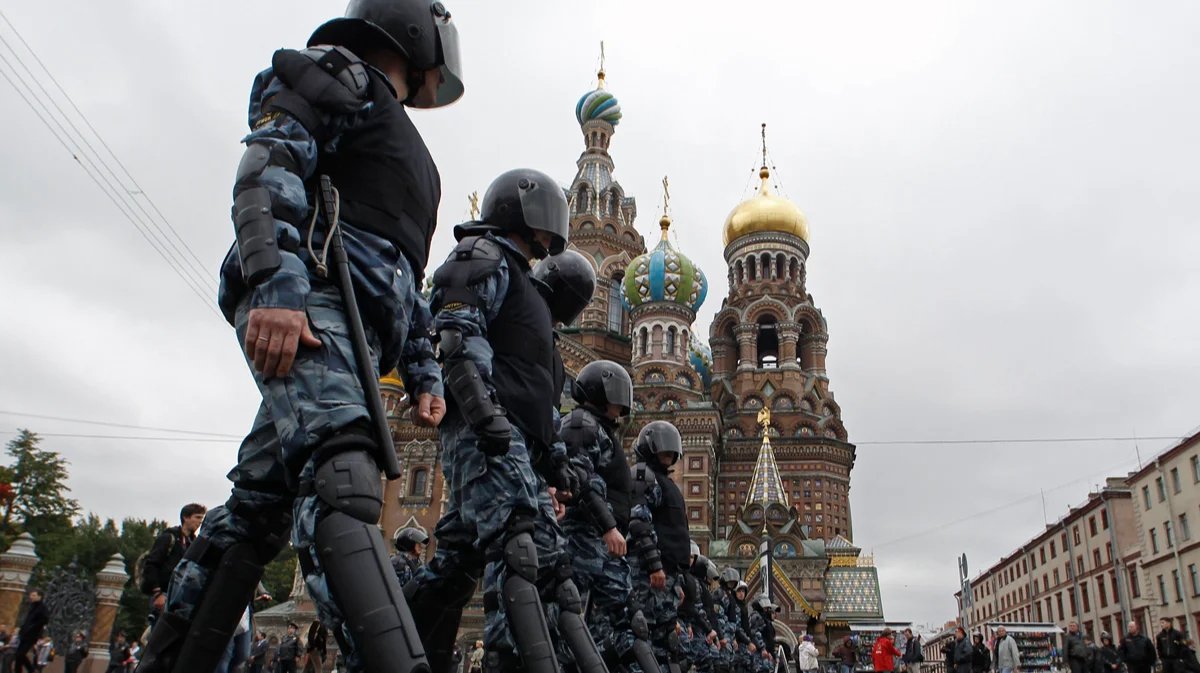
Riot police in front of the Church of the Saviour on Spilled Blood, St. Petersburg, 15 September 2012. Photo: Alexander Demyanchuk / Reuters / Scanpix / LETA
Russia has imprisoned the second-highest number of people in the world for their religious beliefs, according to the annual report by the United States Commission on International Religious Freedom (USCIRF).
The USCIRFs 2025 annual report was released months ahead of schedule following US President Donald Trump’s pledge last month to disband the federally funded agency, which is charged with making policy recommendations to the US government based on its monitoring of religious freedom around the world.
China remains the world leader in terms of those imprisoned for their religious beliefs, with 810 people imprisoned on the basis of their faith alone, the USCIRF said. Russia came in second, with 491, and was listed alongside North Korea, Iran, Eritrea and Saudi Arabia as one of 16 states that caused the authors of the report particular concern.
North Korea was not included in this section of the report as there are no statistics available on the number of people imprisoned in the country for their religious beliefs.
In its specific section on Russia, the commission drew attention to the country’s persecution of Jehovah’s Witnesses, Protestant communities, “non-systemic” Muslims, “alternative” forms of Orthodox Christianity and the ban on the Church of Scientology.
Russia is officially a secular nation without a state religion, and legislation introduced in 1997 declared all religions to be equal before the law and established simple registration procedures for religious groups.
The same law also acknowledged Christianity, Islam, Buddhism, Judaism, as inseparable parts of the country’s historical heritage, as well as “the special role of Orthodoxy in the history of Russia and in the establishment and development of its spirituality and culture”.
Nevertheless, state-directed religious persecution remains prevalent and the state can prohibit the activity of any religious group it deems to have violated public order or to have engaged in “extremist activity”, effectively allowing it to persecute any religious group that doesn’t have an established congregation in the country.
